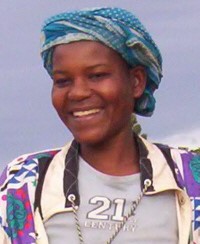Hehe in Tanzania

Photo Source:
Anonymous
|
Send Joshua Project a map of this people group.
|
| People Name: | Hehe |
| Country: | Tanzania |
| 10/40 Window: | No |
| Population: | 1,683,000 |
| World Population: | 1,683,000 |
| Primary Language: | Hehe |
| Primary Religion: | Christianity |
| Christian Adherents: | 96.00 % |
| Evangelicals: | 20.00 % |
| Scripture: | New Testament |
| Ministry Resources: | Yes |
| Jesus Film: | Yes |
| Audio Recordings: | Yes |
| People Cluster: | Bantu, Central-Tanzania |
| Affinity Bloc: | Sub-Saharan Peoples |
| Progress Level: |
|
Introduction / History
The Hehe people (Wahehe in Swahili) are a Bantu ethnolinguistic group primarily located in the Iringa Region of south-central Tanzania. They speak the Hehe language (Kihehe), which is closely related to Kibena and other Bantu languages in the region.Historically, the Hehe are renowned for their resistance against German colonial forces, particularly under the leadership of Chief Mkwawa, who led a successful ambush at Lugalo in 1891. Their centralized and militarized society emerged in the 19th century in response to regional threats, especially from the Ngoni and Sangu peoples. The Hehe state was eventually incorporated into German East Africa, and later British Tanganyika, but their cultural identity and language have remained strong.
What Are Their Lives Like?
The Hehe live in rural and semi-urban communities, practicing mixed farming and livestock keeping. They grow maize, millet, beans, and other crops, and raise cattle and goats. Traditional homesteads are built from mud and thatch, often forming U-shaped or square compounds with central courtyards.Their society is communal and kinship-based, with strong respect for elders and ancestral traditions. Cultural festivals like Ivunguvungu celebrate music, dance, and storytelling, reinforcing community bonds and historical memory.
What Are Their Beliefs?
The Hehe are predominantly Christian. The majority are Roman Catholic, though Protestant denominations are also present and strong. Despite this, traditional beliefs—including ancestor veneration, spirit worship, and ritual healing—remain influential, especially in rural areas.The integration of Christianity into Hehe culture has been described as a contextualized faith, where biblical teachings are interpreted through the lens of Hehe identity and experience.
What Are Their Needs?
The Hehe people need continued access to Scripture in their own language. The full Bible in Kihehe was only recently completed and launched in 2025 after 30 years of translation work. They need discipleship and biblical training. Many believers lack access to theological education and resources in their heart language.Despite high Christian affiliation, syncretism and nominalism are common. Younger generations are increasingly influenced by urbanization and secularism.
Prayer Points
Pray for the effective use and distribution of the newly completed Kihehe Bible, that it would transform lives and deepen faith.Ask God to raise up indigenous leaders and evangelists to disciple others and plant churches in unreached areas.Pray for spiritual revival among nominal Christians and for clarity in understanding the gospel.Pray for unity among churches and for collaborative efforts to reach the next generation.